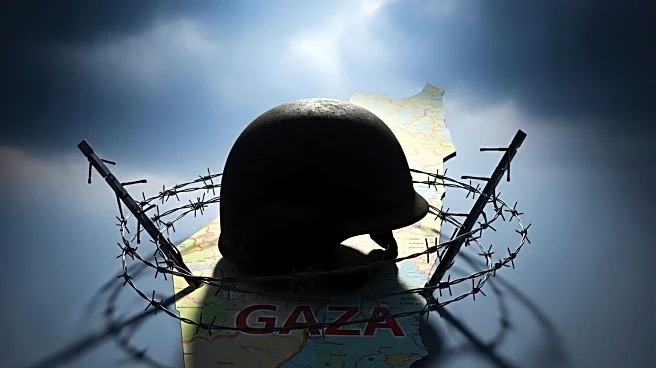What's Happening?
Hamas has deployed 7,000 troops to 'cleanse Gaza' of outlaws and collaborators, raising fears of a civil war within the enclave. This move follows the Israeli Defense Force's withdrawal as part of a peace deal brokered by President Trump. The power vacuum left by the IDF's departure has led to increased tensions among Palestinian factions, with looters stealing weapons and ammunition from Hamas stores. The situation is exacerbated by the presence of armed groups supported by Israel, creating a volatile environment.
Why It's Important?
The deployment of Hamas troops and the potential for civil war in Gaza have significant implications for regional stability and security. The power struggle among Palestinian factions could lead to further violence and disrupt efforts towards peace. The situation highlights the challenges of implementing peace agreements in conflict zones and the need for effective governance to prevent chaos. The international community may need to intervene to support peace efforts and prevent further escalation.
What's Next?
The next phase of the peace deal calls for the disarmament of Hamas, but the group has rejected this idea, seeking further negotiations. The ongoing tensions between Hamas and other factions, such as the Al Qaeda-linked Dughmush clan, could lead to more violence. Political leaders and international organizations may need to engage in diplomatic efforts to prevent civil war and support the peace process.
Beyond the Headlines
The ethical and legal dimensions of the conflict, including the role of external actors in supporting armed groups, highlight the complexities of peace negotiations. The long-term impact of the power struggle in Gaza could influence regional politics and affect the lives of civilians caught in the conflict. The situation underscores the importance of addressing underlying issues to achieve lasting peace.









